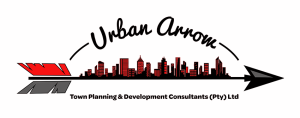Understanding Land Uses and Zoning in South Africa
Navigating the world of land uses and zoning in South Africa is essential for property owners, developers, businesses, and even residents wanting to understand the fabric of their communities. The way land is categorized and regulated significantly impacts what can be built, how businesses can operate, and the overall character of our towns and cities. This comprehensive guide breaks down the fundamentals of land uses and zoning in South Africa, explaining its importance and how it shapes our environment.
What Exactly Are Land Uses and Zoning?
At its core, land use simply refers to how a specific piece of land is being utilized. Think of it as the practical application of the land – is it for housing, commerce, industry, agriculture, or recreation?
Zoning, on the other hand, is the regulatory framework employed by local municipalities to divide land into distinct zones or categories. These zoning regulations South Africa dictate the permissible activities within each zone. Municipalities create these zones and their accompanying rules to ensure organized development, public safety, and to prevent conflicts between incompatible land uses. Essentially, property zoning South Africa outlines what you can and cannot legally do on a particular piece of land.
The Legal Foundation of Zoning in South Africa
The framework for land development South Africa and zoning is built upon several key pieces of legislation:
- The Constitution of the Republic of South Africa: Guarantees property rights while also emphasizing the need for sustainable development.
- Spatial Planning and Land Use Management Act (SPLUMA) of 2013: This national act aims to create a uniform system of planning and land use management across all provinces, promoting efficiency, equity, and sustainability.
- Municipal Planning By-laws and Land Use Schemes: Each municipality develops its own specific by-laws and land use schemes (previously known as town planning schemes). These documents provide the detailed zoning regulations South Africa applicable within their jurisdiction, outlining permitted uses, building restrictions, and development guidelines.
Why is Zoning So Important?
Effective zoning plays a crucial role in creating well-functioning and sustainable communities:
- Organization and Structure: It creates distinct areas for different activities, preventing, for example, factories from being built in residential neighborhoods.
- Public Safety and Health: Regulations on building density, heights, and the types of activities allowed can contribute to safer living and working environments.
- Conflict Prevention: By separating incompatible land uses, zoning minimizes potential nuisances and disputes.
- Planned Growth and Development: It allows municipalities to guide the future development of their areas in a strategic and organized manner.
- Property Value Protection: Well-planned zoning can help maintain the desirability and value of properties within specific zones.
- Environmental Protection: Zoning can designate areas for conservation and restrict development in sensitive ecological zones.
- Efficient Service Delivery: Concentrating certain types of development can make it more efficient to provide infrastructure and services.
Common Types of Zoning in South Africa
While specific categories can vary between municipalities, here are some of the most common property zoning South Africa types you’ll encounter:
- Residential Zones: Designated for housing, with varying densities (e.g., single-family dwellings, townhouses, apartments). Regulations often cover building height, coverage, and the number of dwelling units allowed per hectare.
- Commercial/Business Zones: Intended for retail, offices, restaurants, and other commercial enterprises. These zones can be further subdivided based on the scale and type of commercial activity permitted.
- Industrial Zones: Reserved for manufacturing, warehousing, and logistics. Often categorized into light and heavy industrial with specific regulations addressing environmental impact and operational requirements.
- Agricultural Zones: Primarily for farming and related activities, with restrictions on non-agricultural development.
- Open Space/Recreational Zones: Designated for parks, sports fields, conservation areas, and other recreational uses.
- Mixed-Use Zones: Increasingly common, these zones allow for a combination of residential, commercial, and sometimes light industrial uses within the same area.
- Rural Zones: Aim to preserve the character of rural areas, often with restrictions on intensive development.
- Special Use/Institutional Zones: For specific purposes like schools, hospitals, and government buildings.
Understanding these different land uses defined by zoning is crucial for anyone involved with property in South Africa.
Navigating the Zoning Regulations in Your Area
To understand the specific zoning regulations South Africa that apply to a particular property, you’ll need to consult your local municipality. Here’s how you can typically access this information:
- Municipal Planning Departments: Contact or visit the planning and land use department of your local municipality. They are the primary authority on property zoning South Africa.
- Land Use Schemes/Zoning Maps: Most municipalities have publicly available land use schemes (zoning schemes) and maps, often accessible on their websites or at their offices. These documents detail the zoning of different areas and the specific rules for each zone.
- Zoning Certificates: You can apply to the municipality for a zoning certificate for a specific property. This official document confirms the zoning and permitted land uses.
- Town Planners: Engaging a professional town planner can provide expert assistance in interpreting zoning regulations and navigating related processes.
Understanding the municipal zoning by-laws is crucial before undertaking any development or significant change in land use.
The Interplay Between Zoning and Property Development in South Africa
Zoning regulations South Africa directly influence the feasibility and nature of land development South Africa. Developers must ensure their plans comply with the permitted land uses, building restrictions (like height and coverage), parking requirements, and other regulations stipulated by the relevant zoning.
Sometimes, a desired development may not align with the current zoning of a property. In such cases, there are processes to explore:
- Consent Use Applications: As discussed in our article on Consent Use Applications in Pretoria, this allows for specific uses not explicitly permitted under the current zoning with municipal approval.
- Rezoning (Zoning Amendment): This involves a formal application to change the zoning designation of a property. It’s often a more complex process that can involve public participation. You can learn more about this in our guide on Understanding Rezoning in Pretoria.
Understanding these processes is vital for successful land development South Africa.
Conclusion: Zoning as the Foundation of Organized Land Use
Land uses and zoning in South Africa form the bedrock of how our towns and cities are structured and function. By understanding the zoning regulations South Africa in your area, you can make informed decisions about your property, business, and community involvement. Whether you’re a homeowner, a business owner looking to start a business in a residential area in Pretoria, or a developer planning a new project, navigating the intricacies of property zoning South Africa is a crucial step towards achieving your goals within the legal framework of spatial planning South Africa.





